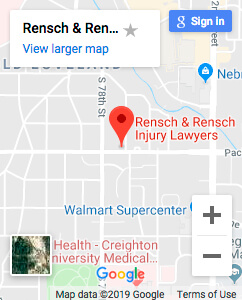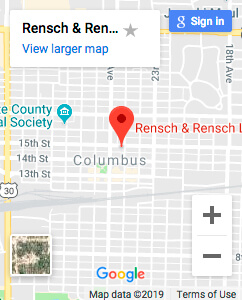The Complexity Of Medical Malpractice Cases In Nebraska
Medical malpractice is perhaps the most controversial topic in American society. Many Americans believe doctors to possess god-like capabilities and that they can do no wrong. On one side doctors and the healthcare industry claims that Malpractice suits are an excuse used by unsatisfied patients who had unrealistic expectations yet on the flip side of that argument are those people who have suffered from gross and obvious negligence on behalf of doctors or other healthcare providers. A graphic and disturbing example is that of a woman left dead on the waiting room floor in a New York hospital. The majority of doctors and nurses are probably competent medical providers, however, mistakes can still be made. Even the best doctors will make mistakes during their career.
Doctors are human beings as well. However, the consequences of making mistakes in the medical industry are often severe. Medical malpractice can leave victims suffering a lifetime full of debilitating injuries or condition. Cases with truly egregious conduct and catastrophic results can make even the most skeptical of souls shudder at the result. In the state of Nebraska, there are a variety of facts that have to be analyzed in order to make certain that a medical malpractice claim has merit and is permitted to be filed with a court. A victim of medical malpractice has a specified time period in which they are able to bring a claim. If they fail to file a claim within that timeframe, it is possible that they will be barred from doing so at any further point and they will not be permitted to recover for their damages.
There is a set time period in which a medical malpractice claim may be filed. A defendant in a medical malpractice case is allowed by Nebraska law to use the defense of modified comparative negligence which allows a damage award to be reduced in proportion to the percentage of fault assigned by a court. Most medical malpractice cases settle out of court prior to the case advancing to the trial stage of litigation. Nebraska is one of a few states that refuse to place a limit on damages that may be awarded to a plaintiff in a medical malpractice case unless the case is brought under a Medical Liability Act that requires participation from qualified health care providers and patients before it can be invoked.
When someone is successful in a medical malpractice claim they are awarded damages in accordance with the principle of comparative fault. A monetary award used to compensate the plaintiff for the injuries they sustained as a result of the plaintiff’s negligence is usually referred to as damages. Compensatory Damages are meant to restore you or make you whole in the position you would have been in had your injury never occurred. Compensatory damages are of 2 types; actual damages and general damages.
Actual damages reimburse you for out-of-pocket costs such as:
- Medical bills
- Prescription fees
- Nursing costs
- Physical therapy costs
- Wages lost from an inability to work
General damages compensate you for occurrences that are hard to evaluate such as:
- Pain and suffering
- Loss of consortium
- Loss of enjoyment of life
- Future medical cost
- Loss of future wages
The state of Nebraska does not place a limit on the amount of compensatory damages you may be awarded by a court unless your lawsuit is against a qualified health care provider. Then some type of cap will be placed on your damage award. If someone close to you has been seriously injured or worse, you are naturally devastated. At a time when you’re vulnerable, traumatized and emotionally exhausted, you need a legal team such as Rensch & Rensch Law that will support you through the complex process that lies ahead.





